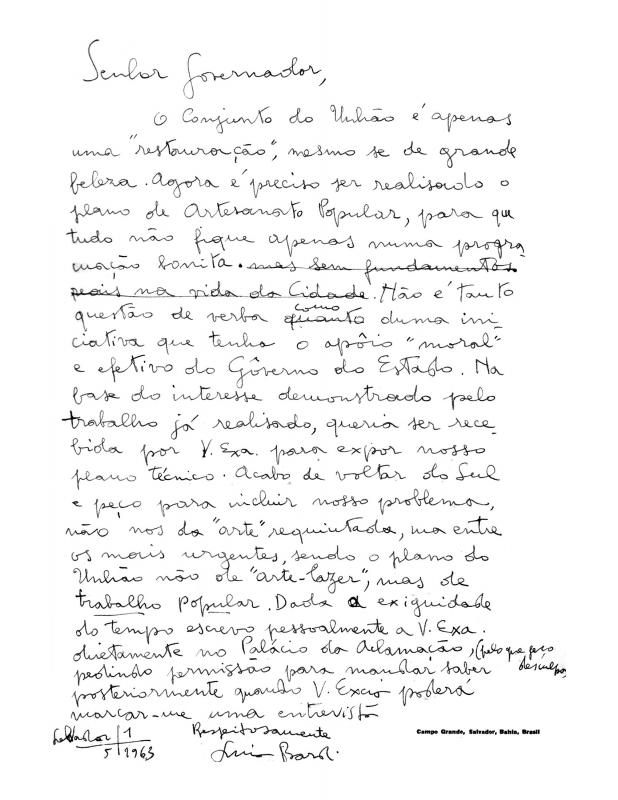The architect Lina Bo Bardi [née, Achillina Bo, 1914–92] lived in Salvador (Bahia) from 1959 to 1964, where she was the director of the MAMB (Museu de Arte Moderna da Bahia). As had happened at the MASP in São Paulo—where she was in charge of program planning and teaching activities—her work at the MAMB consisted of organizing art history exhibitions and shows for contemporary and international artists representing various movements, and re-evaluating the traditional culture of the Brazilian “northeast.” Bo Bardi organized regular classes on art, music, cinema, and theater, and arranged for design and local handcraft workshops. She was a dynamic force in the art field in that part of the country, and helped local artists to make contact with well-known figures in the contemporary arts community. The Museu de Arte Popular was opened in 1963, and housed works from different parts of the country.
Bo Bardi also wrote a letter to the governor of the State of Bahia, Lomanto Júnior, in which she requested government help in implementing the Plano de Artesanato Popular, a project designed to promote the production of handcrafts in northeastern Brazil. This plan complemented the MAP’s activities [see doc. no. 1110865].
This article reveals Bo Bardi’s critical view of the various aspects (poetic and socio-political) of Brazilian traditional arts, a perspective that influenced her organization of the first large exhibitions of traditional art in the country, such as Bahia, the exhibition that was part of the V Bienal de São Paulo in 1959, and Civilização do Nordeste, the exhibition presented by the Museu de Arte Popular at the Solar do Unhão (Salvador, 1963).

